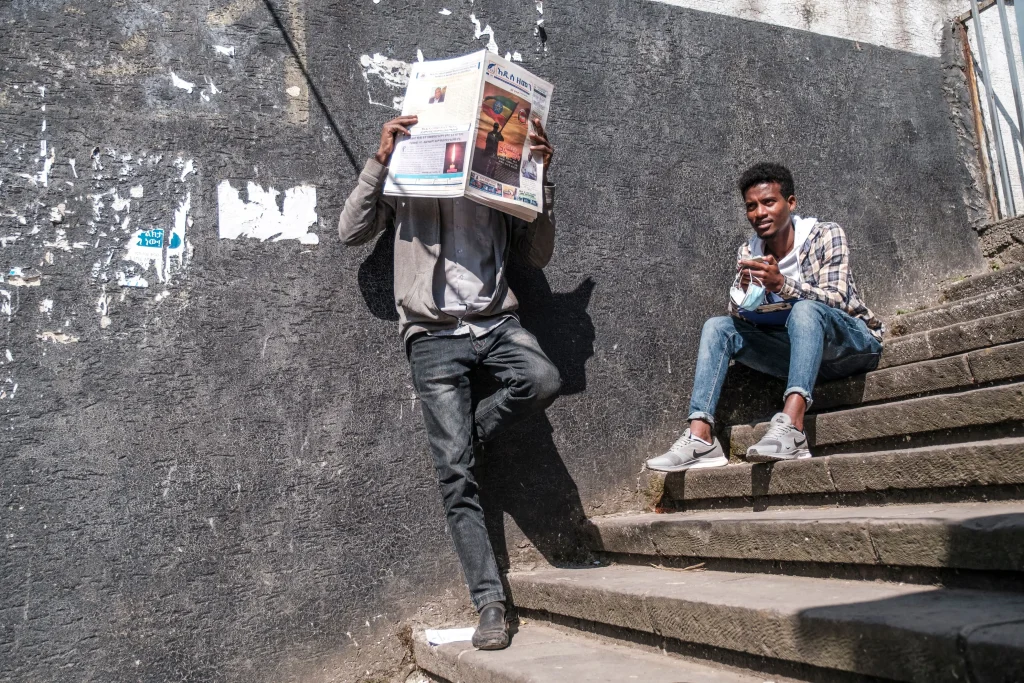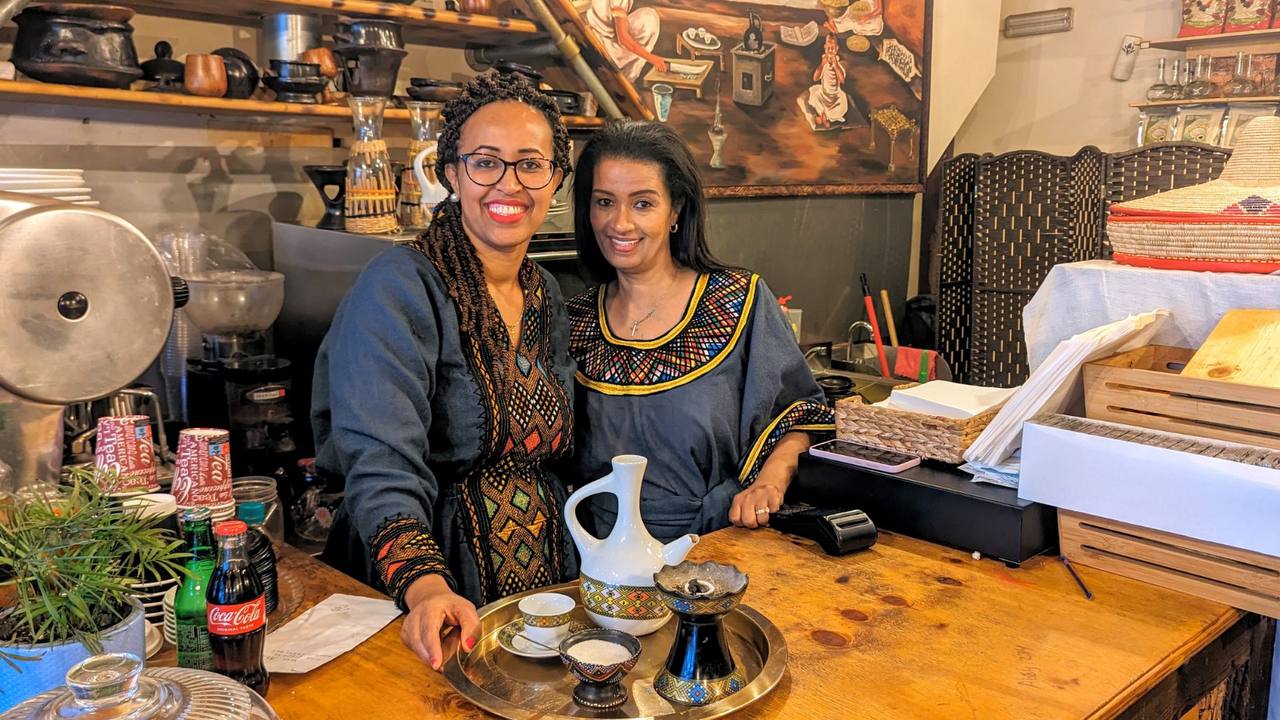Men in downtown Addis Abeba, Ethiopia, November 3, 2021. © 2021 Eduardo Soteras/AFP via Getty Images
Addis Abeba– The World Movement for Democracy has called on Ethiopian authorities to “immediately and unconditionally” lift suspensions on civil society organizations (CSOs) and unfreeze their bank accounts, describing the actions of the Authority for Civil Society Organizations (ACSO) as part of a “growing crackdown” on human rights groups and civic space.
In a statement released on 07 January, 2025, the World Movement for Democracy, a global network of democracy advocates, expressed concern over what it described as the “closing of civic space in Ethiopia” and urged reforms to create a more enabling environment for civil society.
The statement highlighted actions taken by ACSO, which suspended five prominent rights groups between November and December 2024. ACSO accused the Ethiopian Human Rights Council (EHRCO) and the Ethiopian Human Rights Defenders Center (EHRDC) of engaging in activities deemed “not politically neutral” and “against national interests,” announcing their suspension on December 25.
Earlier in November, ACSO had suspended the Center for Advancement of Rights and Democracy (CARD), the Association for Human Rights in Ethiopia (AHRE), and Lawyers for Human Rights (LHR). While these organizations were informed on December 12 that the suspensions had been lifted, CARD and LHR were notified six days later that their suspensions were reinstated, with ACSO alleging they had “failed to comply” with its regulations and “learn from past mistakes.”
The organizations have refuted ACSO’s allegations. EHRDC asserted that it had “adhered to its foundational principles” while maintaining “utmost independence, accountability, and transparency.” The group added, “We have regularly submitted operational and financial reports to the CSOA, which have been acknowledged as lawful and compliant.”
Similarly, EHRCO stated that the accusations “do not reflect the true nature of EHRCO’s work” and emphasized its compliance with Ethiopian law. CARD also rejected the allegations, stating that ACSO failed to follow “requisite legal procedures,” such as providing advance notice or conducting a transparent investigation.
The World Movement for Democracy noted that the suspended organizations had “responded to ACSO’s claims” by submitting financial reports and “welcoming ACSO staff into their offices.” Despite these efforts, the statement observed, “the suspensions remain in effect, restricting the organizations from operating and freezing their bank accounts.”
The group also criticized what it described as “procedural irregularities” in ACSO’s actions, citing “a lack of transparency, insufficient notice, and vague allegations.” It further claimed that the suspensions followed shortly after CARD, AHRE, and LHR signed a public letter opposing proposed amendments to Ethiopia’s media law.
According to the group, the amendments would “undermine the independence” of the country’s media authority by granting greater control to the Office of the Prime Minister.
“These developments,” the statement said, “are part of broad efforts by the government to intimidate and silence human rights defenders.” It added that “at least six leading voices in the human rights and Ethiopian CSO space have fled the country” due to safety concerns, contributing to “a chilling effect within the CSO community.”
Referring to the 2019 Civil Society Proclamation, the statement acknowledged Ethiopia’s earlier efforts to create a “more enabling environment” for CSOs but argued that the current legal framework “grants the government sweeping authority” to interfere in their activities. It warned that without reforms, “independent voices in civil society” would continue to face restrictions.
The World Movement for Democracy called on Ethiopian authorities to “lift the suspensions placed on civil society organizations and unfreeze their bank accounts immediately and unconditionally” and to adopt reforms ensuring civil society can operate in line with international standards.
The Ethiopian Human Rights Commission (EHRC) previously expressed concerns about ACSO’s restrictions on Civil Society Organizations. The Commission “found it troubling” that ACSO issued additional notices without “substantiating the claims,” and urged the authority to “expedite its investigations” to avoid “undue interference with their organizational and associational rights, in accordance with civic freedoms.” AS





